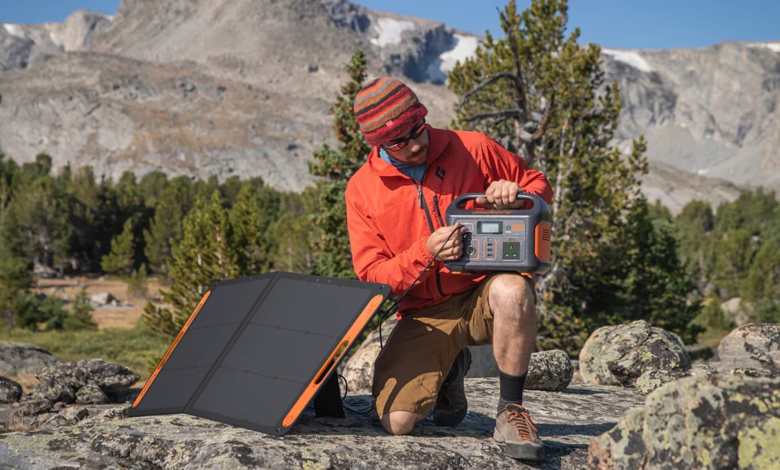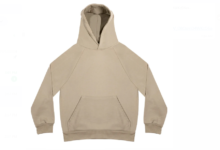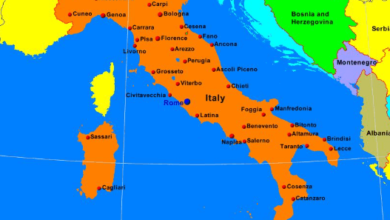Solar-powered Heater: A Sustainable Warmth Option for Winter Camping

The UK is actively transforming its energy structure to support a greener and more sustainable society. They have set ambitious goals, focusing on this energy transition, and have projected net zero and significant opportunities by 2050. This shift will not only address environmental concerns but also enhance energy security by decreasing reliance on fossil fuels.
In line with this movement, a solar-powered heater is an excellent eco-friendly choice for residents, especially during winter camping. Pairing them with a small generator like the Jackery Solar Generator 500 ensures a reliable power source even on cloudy days. Unlike traditional heaters that rely on gas or electricity, solar-powered heaters have little environmental impact.
While helping campers stay warm during their outdoor expeditions, the heaters support the UK’s efforts to decrease carbon emissions and endorse sustainable energy options.
What are Solar Heating Systems?
A solar-powered heater is a device that utilises sunlight to produce heat for different purposes. The heat generated can be used for space heating, water heating, and even heating swimming pools.
When the solar collector is exposed to sunlight, it causes a fluid (commonly water or a specialised heat-transfer liquid) to heat up as it moves through pipes within the collector. The fluid then takes in the solar energy and transforms it into heat. Certain systems include thermal storage, which stores extra heat for use on overcast days or in the evenings.
As an efficient way to utilise solar energy, solar-powered heaters boast different types and applications.
Solar water heater: In residential settings, these systems are commonly used to heat water for domestic hot water supply. In sunny climates, they can significantly reduce energy bills associated with water heating.
Solar air heater: Solar air heaters directly heat air and can effectively warm indoor spaces. They usually comprise a collector that warms the air, which then circulates into the living area.
These devices are ideal for residential heating, particularly in colder climates, and for industrial spaces that require heated air.
Solar pool heaters: They are designed specifically to heat the swimming pool water by using solar collectors to circulate the water.
It is a good choice for extending the swimming season in both residential pools and public recreational facilities.
Solar space heaters: These are integrated into homes or buildings to provide space heating. Utilising different technologies, such as passive solar design, they optimise natural sunlight through windows and thermal mass materials.
They can be used in residential and commercial buildings, especially in areas with extended winter seasons.
Solar thermal collectors: Solar thermal collectors are not sufficient as standalone heating systems, but they can be utilised alongside existing heating systems to offer additional heat.
Hybrid systems that integrate solar heating with conventional energy sources are useful in improving overall energy efficiency.
Benefits of Using a Solar-Powered Heater for Winter Camping
Are you planning to camp in the forest or mountains overnight or enjoy winter fishing? If so, make sure to have warm clothing and a sleeping bag to stay warm. Then, also consider investing in a suitable heater to ensure a comfortable overnight experience.
As more campers embrace the advantages of solar power, the future of winter camping appears brighter, more comfortable, and more environmentally friendly.
Having a solar-powered heater can significantly enhance your outdoor experience by offering you numerous benefits. Some of the highlights of solar power systems include:
1. Independence from grid power
Using solar heating systems offers a major benefit, which is freedom from traditional grid power. In remote camping areas, access to electricity may either be scarce or completely unavailable. Solar-powered heaters will harness solar energy for warmth and help campers remain cosy without depending on external power sources. This independence not only improves the camping experience but also encourages a feeling of self-reliance and exploration for campers.
2. Energy savings without costly fuels or electricity
Solar-powered heaters operate on renewable energy. This means you can enjoy significant savings during your winter camping trips instead of depending on costly fuels or electricity like the traditional heating methods. Using the plentiful energy from the sun, they remove the need for continual expenses associated with purchasing fuel or paying electric bills.
Additionally, solar heating systems are designed to be efficient. This helps to maximise heat output while minimising energy usage.
3. Safer camping experience with lower fire risk and built-in safety features of the solar-powered heaters
During winter camping, you should prioritise safety. Solar-powered space heaters provide numerous attributes that promote a safer setting. By generating heat without combustion, they significantly reduce the risk of fire.
Furthermore, many solar-powered heaters come with integrated safety functions like automatic shut-off systems and temperature control. These functions guarantee a safe operation. This assurance enables campers to concentrate on savouring their outdoor excursion instead of being concerned about possible dangers.
4. Environmental benefits of great use of renewable solar power
The use of renewable solar power helps in creating a cleaner environment. Solar power, unlike fossil fuels, provides a sustainable energy source and doesn’t release harmful emissions that can contribute to climate change.
Campers can contribute to the global transition movement of greener energy solutions by choosing solar heating systems and thus reducing their carbon footprint. This eco-friendly approach benefits the planet and encourages campers to develop a deeper appreciation for nature.
Why You Should Equip Your Solar-Powered Heater with a Solar Generator
As winter camping enthusiasts seek efficient heating solutions, solar-powered heaters are increasingly popular. However, understanding the limitations of these heaters and the necessity of combining a solar-powered heater and a solar generator will help you secure a comfortable and reliable camping experience.
- Limitations of solar-powered heaters
Here’s a look at the limitations of solar-powered heaters that might affect your winter camping experience.
Intermittent energy supply due to reliance on weather
Solar-powered heaters depend on sunlight for energy. This dependence can result in uneven heating, especially on overcast days or during short winter days with limited sunlight. Thus, campers may find themselves needing more heating when they need it most.
Limited energy storage
Many solar-powered heaters can only utilise the energy they have collected during the day due to their limited energy storage capacity. This can lead to inadequate power during the night or in prolonged cloudy conditions, which may affect the heater’s performance.
- Benefits of the combination of solar-powered heaters and solar generators
The combination of solar-powered heaters and solar generators can bring you benefits as follows:
Consistent heating
Integrating a solar generator with a solar-powered heater allows users to maintain a consistent and dependable heat source, no matter what the weather conditions are. When solar energy is insufficient, the generator supplies extra power to ensure that campers remain warm.
Reliable backup power supply
In the event of an energy supply failure from the solar-powered heater, a solar generator can step in as a reliable alternative power source. This makes sure that unexpected cold spells are avoided.
Increased flexibility
Using a solar-powered heater along with a solar generator allows for more flexibility. Campers are able to use the heater in different locations without the need for electrical outlets as long as their solar generator is fully charged and prepared.
For winter campers, equipping a solar-powered heater with a solar generator is not just a convenience; it is a necessity. Solar heating systems have limitations, including intermittent energy supply and limited energy storage, which can affect their effectiveness. However, by integrating a small power generator, campers can experience consistent heating, dependable backup power, and enhanced flexibility. This will supply a cosy and comfortable camping experience, even in the most severe winter conditions.
Tips for Choosing Suitable Solar Heating Systems for Winter Camping
When planning for winter camping, it is important to select the appropriate solar heating system to guarantee your comfort and safety. This can range from simple solar blankets to more sophisticated solar-powered heaters. When selecting a suitable system, consider the following key elements:
1. Heating needs
To effectively utilise solar-powered heaters for your camping adventures, it’s essential to evaluate your heating needs by considering the following factors:
Temperature range
What are the lowest temperatures you anticipate facing? Take into account the average winter temperatures in your camping location. If you anticipate freezing weather, you might require a more durable solar-powered heater or multiple units.
Space size and duration of use
Determine the number of individuals who will use the heating system and the duration of use. If your camping is going to be extended, then you might require more effective and higher capacity systems to ensure your continuous warmth.
2. Installation and Maintenance Ways
As for installation and maintenance ways, you should consider the following factors:
Ease of installation
Select solar heating systems that are easy to install and compatible for quick setup in fluctuating weather conditions. Make sure they are suitable for your tent or shelter type and require minimal tools for installation in case you’re in a remote location. Portable solar-powered heaters are easy to operate and require minimal assembly.
Maintenance and durability
For best results, you should take into account the maintenance needs of your solar heater, such as regular cleaning and replacement of parts. Select systems that have easily accessible components, are durable, and are made of weather-resistant materials.
3. Costs
It’s also important to weigh the costs to ensure you make a financially sound and practical choice for your heating needs.
Initial investment
Find a balance between your budget and heating requirements, and evaluate the relationship between quality and price. This helps in confirming that higher-priced systems match your camping frequency and needs.
Long-term value
You can maximise value by investing in systems with a longer lifespan. Invest in products with durable materials and reputable brands like Jackery to minimise the need for frequent replacements.
Systems with better long-term value are not just limited to winter camping but can be used for general camping or emergency heating.
Accessories and add-ons
Remember to factor in the expenses for essential add-ons like batteries, solar panels, or backup generators. Having a small power generator can help supplement energy during periods of low sunlight.
Small Power Generators from Jackery
Jackery is a well-established and trusted company in the solar energy sector. They are globally recognised as committed to sustainability and user-friendly designs. This commitment has made them a leading choice for those seeking power solutions. Here’s a couple of Jackery solar generators that are worth purchasing:
- Jackery Solar Generator 500
The Jackery Solar Generator 500 is a clean and quiet power solution that combines the Explorer 500 Portable Power Station with the SolarSaga 100W solar panel. It has a compact and lightweight design, with one of the lightest and most portable rechargeable lithium battery generators on the market. Thus, it is easy and convenient to carry around wherever you go for outdoor activities.
This versatile portable solar generator is easy to set up, and its PURE SINE WAVE 500W AC outlet allows for a stable power supply. It can power up mainstream electronics and small appliances such as phones, laptops, lamps, small fridges, CPAP machines, and other devices, serving your diverse needs for energy supply. Besides, the solar generator is low maintenance and easy to use, with the solar panels being waterproof for outdoor use, making it a portable and dependable power source for campers.
- Jackery Solar Generator 240 v2
As a safe and reliable option, the Jackery Solar Generator 240 v2 has a longer battery lifespan of up to 3000 life cycles. For a lightweight design with a foldable handle, it can fit into your backpack to be carried everywhere, perfect for road trips. With a 256Wh capacity and a 300W output, it supports diverse outdoor activities such as fishing and camping. Built with high-quality materials, it is designed to withstand outdoor conditions, ensuring reliable performance during your adventures.
Featuring solar charging and quiet operation, it produces zero emissions and no fumes, enhancing your outdoor experiences while contributing to a greener society. Additionally, through a smartphone app, you can remotely control the Jackery Solar Generator 240 v2. It supports Bluetooth and WiFi connectivity, enabling you to effortlessly monitor and manage power output.
Conclusion
Solar heaters are an eco-friendly heating choice and come with features tailored to meet your specific needs for outdoor explorations, including camping. They are also a cost-free alternative to natural gas or fuel oil. Equipping your solar-powered heater with a solar generator would be a better choice for your winter camping.
Elevate your camping experience with Jackery Solar Generator 500 and Jackery Solar Generator 240 v2. With Jackery’s commitment to quality and sustainability, you can trust their products to provide the power you need when you need it most.






